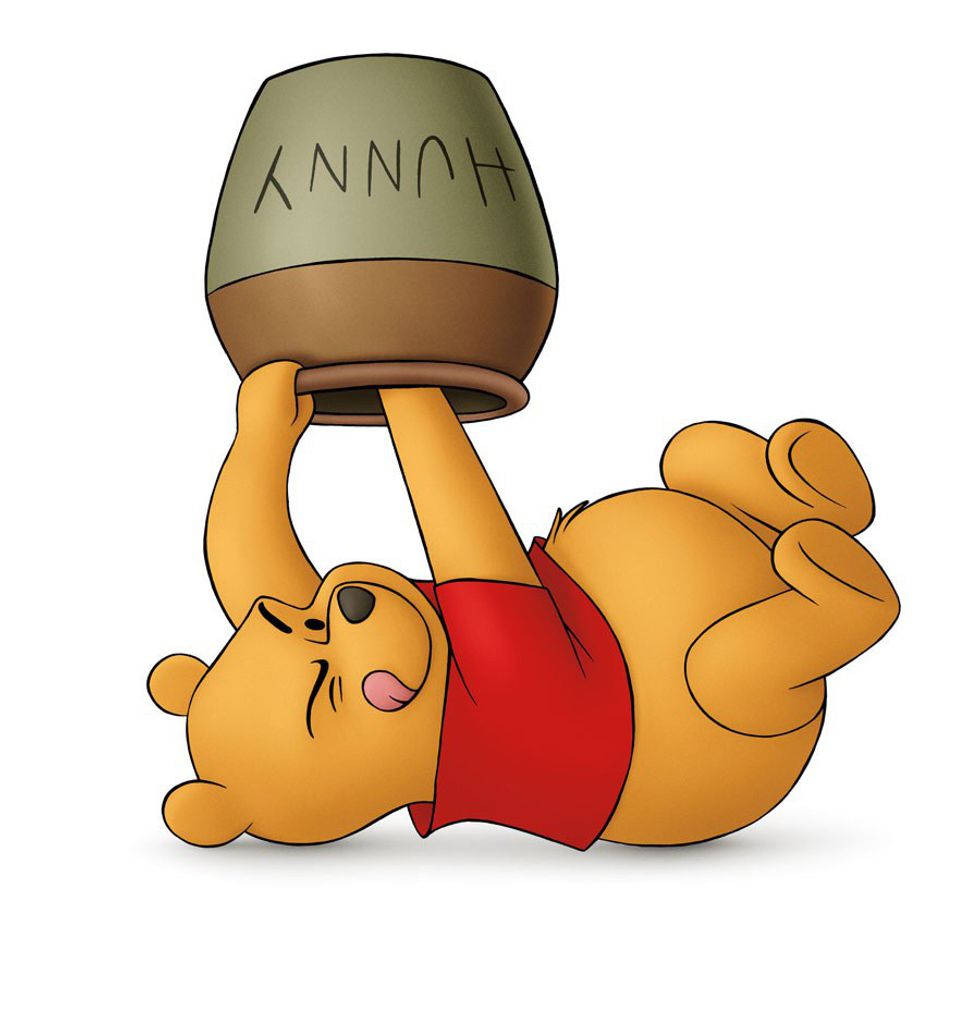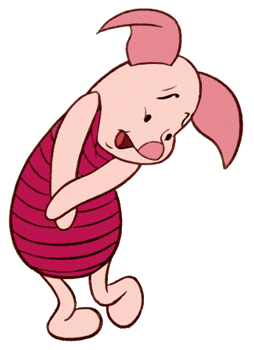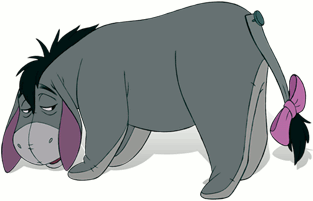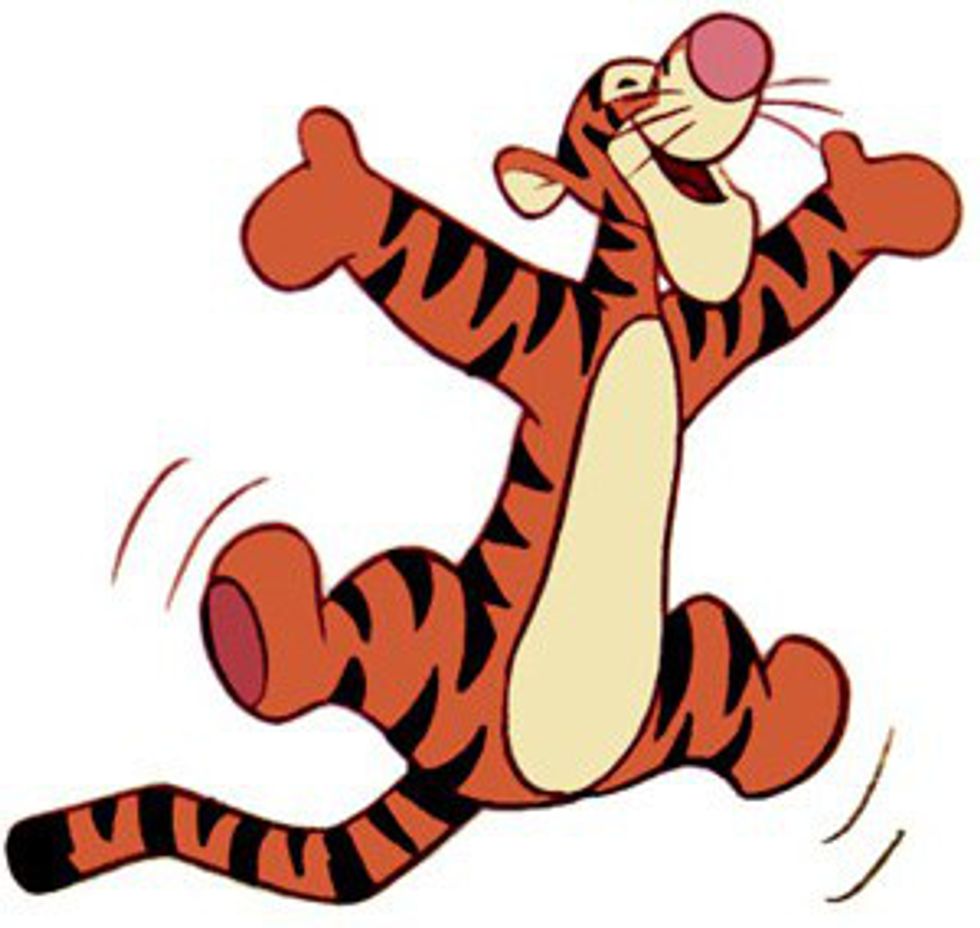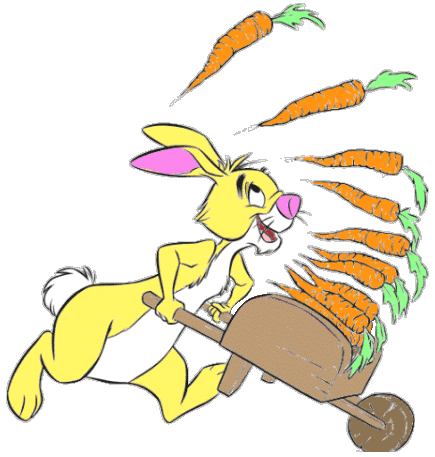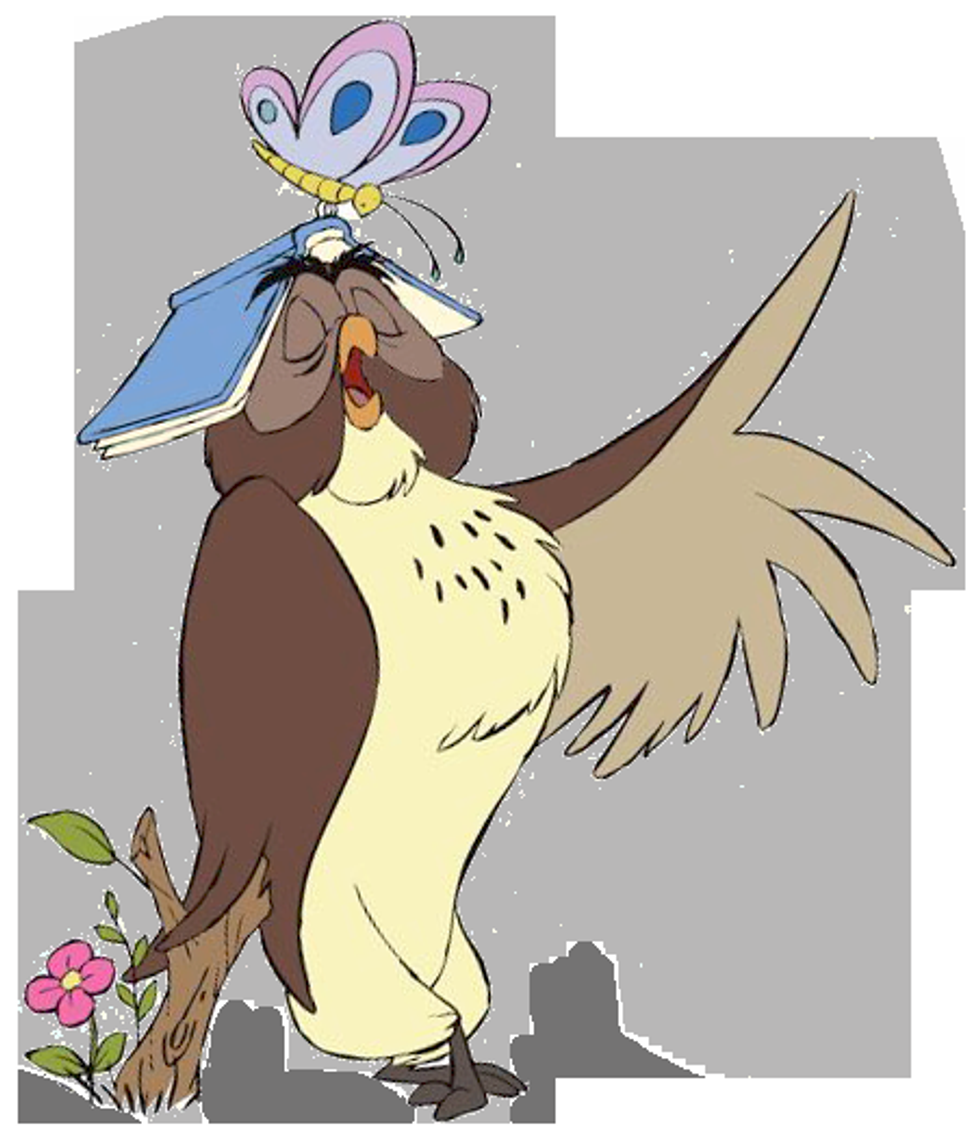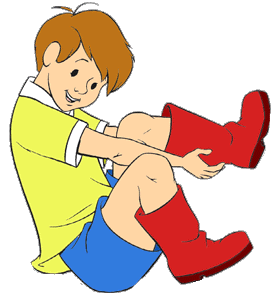Anxiety, stress, and depression have riddled my existence for as long as I can remember. One day I love my life, the next I wish I wasn't in it. I go into a test feeling confident and capable, and halfway through I have a panic attack that consumes my ability to think. I'm laughing one minute and sobbing uncontrollably the next. I either wake up excited to take on the world or grudgingly open my eyes wishing for the day to slip away. There are times I can sense a bad day coming, and others that take me completely by surprise.
Sometimes my parents have a difficult time understanding this battle raging on inside my head — that sometimes it takes every ounce of courage just to walk out the front door. Yet there is one thing that never fails to put a smile on my face, a being who has always been there at my grandma's, ready to provide laughs and comfort: Winnie the Pooh. I know what you may be thinking, I am an adult and I still watch Winnie the Pooh on a gloomy day, that is kind of pathetic — but, recently in a conversation with my cousin, I realized that each fantastical Winnie the Pooh character has a very real disability. After doing some additional reading of fan theories online, I discovered my dependence on the characters when I was young provided me with a sense of comfort because Pooh, Piglet, Eeyore, Tigger, Rabbit, and Owl all have challenging disabilities that make them easy to relate to.
Winnie the Pooh: Eating Disorder
Pooh Bear wanting another "little smackeral of honey," may seem innocent, but this constant need for food signifies disorders that are systematically encouraged in our society, especially among young girls. While Pooh's excessive consumption of honey does not necessarily suggest anorexia or bulimia, it does certainly hint at binge-eating — a disorder whose compulsive acts are relied on as a source of obtaining immediate satisfaction. Personally, when I am stressed out or feeling down, I immediately devour "comfort food"; not necessarily because I am hungry, but because that gratifying taste is a distraction from how awful I feel — which I imagine many others can relate to. Thus, it is important to remember that we use food as a means to control our emotions so that we are more empathetic to those that are struggling to find comfort outside of food.
Piglet: Anxiety Disorder
Piglet is my spirit animal. Their embodiment of insecurity and uncertainty is what I feel on a daily basis. I think: Am I good enough? Am I making the right decision? Are people going to like me? Am I smart enough? Am I strong enough? Am I brave enough? Will I ever stop questioning myself? All are questions that echo a common theme: my inability to be content with who I am. When I am about to take an exam, give a presentation, or answer questions in an interview, it isn't as simple as telling myself to "do my best" when I fear my best doesn't meet the expectations society wants a "successful" person to obtain. Ultimately, what people need to keep in mind is that anxiety escalates quickly, so it is best to soothe the person with kindness and understanding — judgmental tones and stares will only make that person's worst fears come alive.
Eeyore: Depression
Eeyore's constant gloomy state may be depressing, but his character exemplifies a dark reality for thousands of people. Whether it be a result of a lack of Serotonin (the happy chemical) in your brain, the death of someone in your life, or a trauma you've had to endure, depression is a very serious matter. A concerned family member or friend may try to lift your spirits with, "I know you're feeling down, but there is someone else out there who has it far worse than you," or "You just need to have a positive attitude," or "You have such a great life, I don't understand how you can be so sad," which can be extremely counter-productive. While seemingly insensitive, these expressions are concerns for your well-being — your loved ones only want to see you love yourself as much as they love you. However, being someone who deals with episodes of depression, I can say to all you distressed folks out there that most of the time, what depressed people need most is for you to hold them, tell them you love them, and say that you're there if they need anything — that means so much more than you would ever believe.
Tigger: Attention Deficit Hyperactivity Disorder (ADHD)
Tigger is a character that is fun-loving and easily excitable. While he always means well, Tigger has a hard time calming down and picking up on social cues — something people with ADHD often battle with. I do not have the disorder, but my stepbrother did, so I have some insight on the problems he faced. Dealing with inattention, hyperactivity, and impulsivity, my stepbrother was often ostracized by his peers. I too remember being annoyed when he would "spaz out," but then I'd remind myself that the conversations and games my siblings and I would play with him was his main source of positive attention. I know it can be more than difficult to react calmly to the symptoms of ADHD, but we need to remember that beneath it all, there is a person who is seeking love and acceptance just like the rest of us.
Rabbit: Obsessive Compulsive Disorder (OCD)
Rabbit's obsessive need for order and routine may seem neurotic to some, but these habits of repetitiveness are what give people the ability to cope with inconsistency in their lives. A person with OCD relies on patterns, numbers, cleaning and specific placements to feel a sense of control when they are struggling with the changes life brings. Having OCD tendencies, I understand the need for specificity in order to maintain sanity, because if I cannot keep order over my daily routines, I feel there is no way on earth I can deal with the changes of the future. Thus, in order to combat the compulsive need to rely on relief-rituals, we need to learn to face our fears, to have a person by our side that assures us that because something is not done in an exact, certain way, it does not mean the world will end (although that may be how it'll temporarily feel).
Owl: Narcissism
Owl's need to repeatedly remind everyone that he obtains the most knowledge in the Hundred Acre Wood reflects the essence of a narcissist. He hates when others contradict him because if his intelligence is in question, than everything his confidence is based on is in question. As excruciatingly frustrating as it may be to listen to someone tell you how much better, greater, smarter, stronger, braver, etc. they are, their personality is a disorder based on the falsity of perfection. Their extreme selfishness and condescending attitude may create environments of criticism and discomfort, but perhaps this behavior is a coping mechanism for a phobia they have in believing themselves to be weak and inadequate.
Christopher Robin: Up for Interpretation
In terms of Christopher Robin, some believe him to have Schizophrenia or Autism (which are both very real possibilities), but I like to believe that Christopher Robin embodies something we all struggle to possess: a person who finds love and acceptance for everyone in light of their differences. While the fact that this embodiment is in the form of a white, male child is a whole other set of issues, Christopher Robin relays the innocence of children — in their ability to see not what someone looks like nor what disabilities they possess, but in the goodness that lives inside every person. For if we all let out the Christopher Robin that lives inside of us, our world would revolve around acceptance instead of alienation. Those who are disabled should be able to feel comfortable in their own minds and bodies without being subjected to scrutiny from society.




